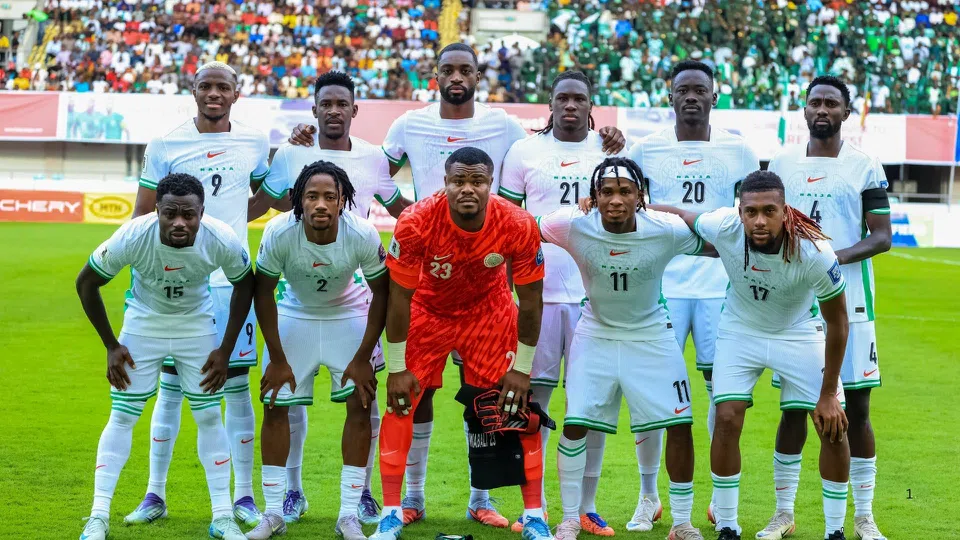The air in Rabat felt heavy, the kind that presses into the chest when a nation’s dreams hang in the balance. After 120 tense minutes ended 1-1, Nigeria’s journey to the 2026 World Cup ended from twelve yards, a 4-3 penalty loss that sent DR Congo forward and left the Super Eagles staring into the mirror. In the hours that followed, a debate erupted that cut far beyond missed spot kicks. It crystallized into something larger, a reckoning that many insiders insist is overdue. This moment, framed by raw emotion and public apology, is the heart of Nigeria’s Football Crisis Post-World Cup Qualifier Loss.
What happened in Rabat
On a night loaded with consequence, Nigeria and DR Congo could not be separated in open play, the final ending 1-1. The shootout decided what 120 minutes could not, and the Leopards held their nerve for a 4-3 win. Tempers briefly flared on the touchline after Chancel Mbemba converted the decisive kick, with Super Eagles head coach Eric Chelle later claiming he saw suspicious actions from a Congo official during the penalties.
Chelle told ESPN Africa that, during the shootout, he believed a DR Congo staffer was performing something unusual. Ifeanyi Udeze, a former Super Eagles defender, dismissed that narrative outright, arguing the better team on the night advanced. As the dust settled, the focus shifted from the spot to the structure behind the squad.
A national apology and a heavy silence
The Nigeria Football Federation issued a public apology to President Bola Ahmed Tinubu, to government, and to supporters. The statement called the defeat a moment of profound sadness, noting the deep emotional weight of missing the World Cup for a second straight cycle.
“The Nigeria Football Federation wishes to openly and sincerely apologise to His Excellency, President Bola Ahmed Tinubu, to the Federal Government as a whole, and to millions of Nigerians, most especially our passionate, loyal football fans, following the Super Eagles failure to qualify for the 2026 FIFA World Cup finals.”
That sentiment captured the mood. For a team that often serves as a symbol of unity and hope, this disappointment did not feel like an isolated failure. It felt systemic.
Victor Anichebe’s diagnosis of a deeper problem
Former forward Victor Anichebe did not temper his words. He framed the moment not as a stumble, but as a potential turning point if Nigeria chooses to be honest about what comes next. According to Anichebe, the problem runs deeper than money or malfeasance. He argued the real rot is the cycle of poor appointments at key levels.
“The real crisis lies in chronic incompetence and the continuous appointment of individuals who lack the strategic vision, experience, and understanding required to drive long-term success.”
He urged a reset anchored in patience and process, a refusal to chase quick fixes that fade under pressure. Strategic leadership, in his view, must build structures that last, even if they do not deliver instant glory.
“We must trust a proper process instead of chasing quick fixes.”
Crucially, Anichebe challenged a common assumption, that a distinguished playing career automatically qualifies a person for technical or administrative roles.
“Being an ex-player is not a birthright to leadership. If you haven’t studied, built your CV, or gained the expertise needed, the role is not automatically yours.”
Fresh legs and a squad in transition
Garba Lawal, who represented Nigeria at the 1998 and 2002 World Cups, joined the chorus for renewal. He made a direct, pragmatic call for younger players to supplement, and eventually replace, aging legs.
“Fresh legs should come into the Super Eagles because some of the current players are aging, and if you want to bring in the fresh legs, it has to be now.”
That assessment echoes a widespread feeling among fans and pundits. The team has undeniable talent, yet the cohesion and energy to dominate key phases of big matches has flickered too often. Introducing fresh legs is not just about names, it is about identity, intensity, and a new competitive edge.
Accountability and the voodoo debate
After the final kick in Rabat, the conversation briefly descended into the supernatural. Eric Chelle claimed, in a moment captured by ESPN Africa, that a DR Congo official performed “some voodoo” during the penalties. The imagery was striking, but the response from former players was blunt.
Ifeanyi Udeze rejected that line of thinking, saying the Congolese earned their victory with character and clarity. He argued the players must accept responsibility, noting that authorities invested adequately for success and that performance on the night simply fell short. In Udeze’s words, the team did not show up in the way Nigerians expected.
Victor Ikpeba was equally stark in his assessment, stating that DR Congo fully deserved the playoff win. Stripped of excuses, the message from respected voices inside the Nigerian game was simple. Look inward, own the performance, improve.
Eric Chelle under pressure and the question of timing
The scrutiny on Chelle has intensified. A detailed local analysis argued that he failed to meet the brief of World Cup qualification, pointing to tactical inflexibility and in-game management issues. It highlighted a recurring problem in midfield balance, particularly when a two-man core left spaces opponents could exploit, and questioned choices that did not seem to suit Nigeria’s strengths.
Yet that same analysis cautioned against an immediate dismissal, with the Africa Cup of Nations approaching. The piece argued that changing coaches so close to a major tournament would be unwise, citing the negative precedent of a pre-AFCON switch that ended in an early exit. The proposed path is to reassess after the next competition, once emotions cool and options are clearer.
Osimhen’s substitution and the fine line between courage and caution
A key flashpoint involved Victor Osimhen. Reporting from journalist Shina Oludare suggested that the striker wanted to continue despite a minor hamstring issue, but the technical staff denied the request to protect his fitness with AFCON on the horizon. He was withdrawn for Akor Adams while the score was 1-1.
Even opponents hinted at the impact of that change, with a DR Congo defender acknowledging that losing Osimhen was a big miss up front. The decision underscores a tough balance at elite level, when the will of a star meets the prudence of a staff thinking beyond the next kick. Managing risk during a high stakes shootout run-up is never simple, and in hindsight every choice sits under a harsher light.
From pain to plan
This is not the first time Nigeria has faced a footballing reckoning, but the context is different. Missing consecutive World Cups bites harder when the squad’s ceiling still feels high and the talent pipeline remains active. The immediate task is practical and unglamorous, build a football culture that turns potential into reliable performance under pressure.
Anichebe’s call for expertise and process, Lawal’s demand for youth and urgency, Udeze’s push for accountability, these are not competing arguments. They form the pillars of a coherent response if decision makers choose to listen.
What the next months demand
The calendar offers little time to lick wounds. The focus shifts to Africa Cup of Nations qualifiers next month, with fixtures against Tunisia, Tanzania, and Uganda. Results matter, but so will the manner of play. The Super Eagles need to look like a team with a plan, one that emphasizes tempo, midfield control, and clarity in boxes at both ends.
- strengthen selection with data and form,
- add younger profiles without losing core leaders,
- define a clear playing model that suits available talent.
None of this is a shortcut. It is a reset that must be seen, felt, and measured. Clarity of roles across technical, administrative, and development areas will determine whether this disappointment becomes a catalyst or just another bruise.
The leadership conversation that cannot be avoided
At the center of the storm is leadership, both at federation level and within the technical setup. Anichebe’s blunt point about qualifications and expertise matters because international football is an unforgiving evaluator. Structures that are built on sentiment and speed wobble under stress. Those built on expertise and consistency withstand it.
The NFF apology acknowledged the emotional truth of this failure. The next step is practical truth, choosing people with proven skills and a roadmap to implement. That includes scouting and analytics, coaching education, and clearer pathways from youth levels to the senior side. Every decision must be made with the question in mind, does this help Nigeria win important games the next time pressure peaks.
Owning the moment
No single subplot should define the DR Congo loss. Not a disputed touchline moment, not a substitution that some would have delayed, not a single missed penalty. The real story is collective, a talented team that did not fully inhabit its potential when it mattered, and a system that did not support it well enough to bridge the gap.
In that sense, the voices that rose in the aftermath are not noise, they are a map. If the federation embraces the humility of its own apology, if the technical crew embraces tactical adaptability, if the squad embraces competition for places that introduces fresh legs without sacrificing standards, then this night in Rabat can be more than a scar. It can be a turning point.
From Rabat to redemption
Football, at its most unforgiving, is also profoundly generous. It gives the chance to respond, to rebuild belief, to write a different ending. Tunisia, Tanzania, Uganda, then AFCON, each game is now a test of identity as much as result. The way Nigeria plays, the way it selects, the way it communicates, these will tell us whether the lessons were only learned in words or embedded in action.
The Super Eagles have always carried a burden of expectation, and with good reason. The talent remains, the passion is undimmed, and the path forward is clear if the right choices follow. There are no shortcuts left. There is only the work that turns apology into accountability, rhetoric into reform, and heartbreak into a future that feels worthy of the crest.






